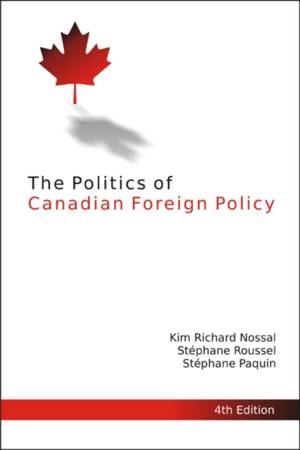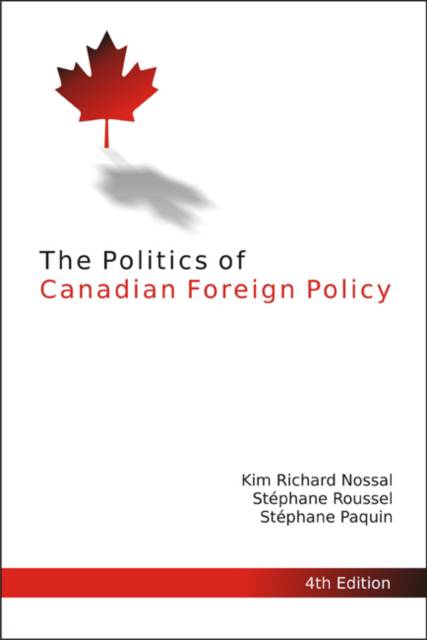
- Afhalen na 1 uur in een winkel met voorraad
- Gratis thuislevering in België vanaf € 30
- Ruim aanbod met 7 miljoen producten
- Afhalen na 1 uur in een winkel met voorraad
- Gratis thuislevering in België vanaf € 30
- Ruim aanbod met 7 miljoen producten
Zoeken
The Politics of Canadian Foreign Policy, 4th Edition
Volume 188
Stéphane Roussel, Stéphane Paquin, Kim Richard Nossal
€ 62,45
+ 124 punten
Omschrijving
The fourth edition of this widely used text includes updates about the many changes that have occurred in Canadian foreign policy under Stephen Harper and the Conservatives between 2006 and 2015. Subjects discussed include the fading emphasis on internationalism, the rise of a new foreign policy agenda that is increasingly shaped by domestic political imperatives, and the changing organization of Canada's foreign policy bureaucracy. As in previous editions, this volume analyzes the deeply political context of how foreign policy is made in Canada. Taking a broad historical perspective, Kim Nossal, Stéphane Roussel, and Stéphane Paquin provide readers with the key foundations for the study of Canadian foreign policy. They argue that foreign policy is forged in the nexus of politics at three levels - the global, the domestic, and the governmental - and that to understand how and why Canadian foreign policy looks the way it does, one must look at the interplay of all three.
Specificaties
Betrokkenen
- Auteur(s):
- Uitgeverij:
Inhoud
- Aantal bladzijden:
- 424
- Taal:
- Engels
- Reeks:
- Reeksnummer:
- nr. 188
Eigenschappen
- Productcode (EAN):
- 9781553394433
- Verschijningsdatum:
- 7/12/2015
- Uitvoering:
- Paperback
- Formaat:
- Trade paperback (VS)
- Afmetingen:
- 152 mm x 229 mm
- Gewicht:
- 635 g

Alleen bij Standaard Boekhandel
+ 124 punten op je klantenkaart van Standaard Boekhandel
Beoordelingen
We publiceren alleen reviews die voldoen aan de voorwaarden voor reviews. Bekijk onze voorwaarden voor reviews.











